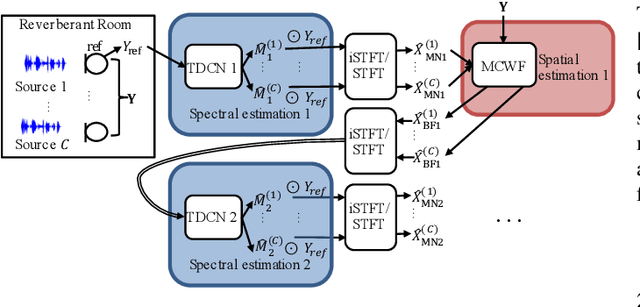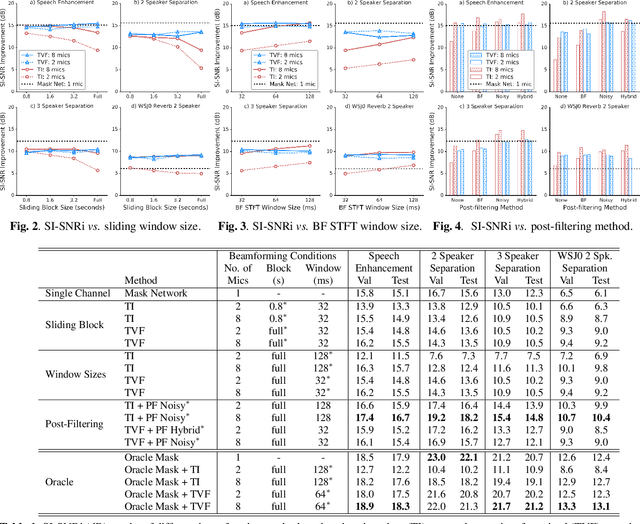Alternating Between Spectral and Spatial Estimation for Speech Separation and Enhancement
Paper and Code
Nov 18, 2019

This work investigates alternation between spectral separation using masking-based networks and spatial separation using multichannel beamforming. In this framework, the spectral separation is performed using a mask-based deep network. The result of mask-based separation is used, in turn, to estimate a spatial beamformer. The output of the beamformer is fed back into another mask-based separation network. We explore multiple ways of computing time-varying covariance matrices to improve beamforming, including factorizing the spatial covariance into a time-varying amplitude component and time-invariant spatial component. For the subsequent mask-based filtering, we consider different modes, including masking the noisy input, masking the beamformer output, and a hybrid approach combining both. Our best method first uses spectral separation, then spatial beamforming, and finally a spectral post-filter, and demonstrates an average improvement of 2.8 dB over baseline mask-based separation, across four different reverberant speech enhancement and separation tasks.
 Add to Chrome
Add to Chrome Add to Firefox
Add to Firefox Add to Edge
Add to Edge